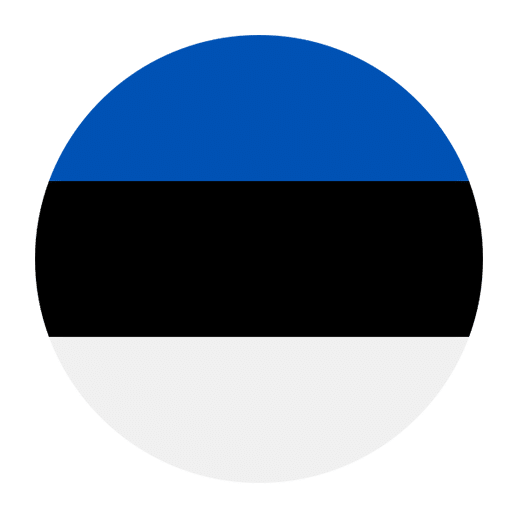Learning a new language opens up a world of opportunities, from understanding different cultures to enhancing cognitive abilities. When diving into Estonian, one of the essential aspects to grasp is how to talk about time. Whether you’re planning your day, setting up meetings, or recounting events, knowing the common Estonian words for describing time can significantly enrich your communication skills.
Estonian, a Finno-Ugric language, has its unique set of vocabulary and grammatical rules. Despite this, there are many similarities to English when it comes to describing time, making it easier for English speakers to learn. In this article, we will explore some of the most common Estonian words and phrases related to time, helping you to build a solid foundation in your Estonian language journey.
Days of the Week
Understanding how to refer to the days of the week is fundamental in any language. Here are the Estonian names for the days of the week:
– **Esmaspäev** – Monday
– **Teisipäev** – Tuesday
– **Kolmapäev** – Wednesday
– **Neljapäev** – Thursday
– **Reede** – Friday
– **Laupäev** – Saturday
– **Pühapäev** – Sunday
These terms are quite straightforward and are used similarly to their English counterparts. For example, “Ma lähen esmaspäeval tööle” translates to “I go to work on Monday.”
Months of the Year
Next, let’s look at the months of the year in Estonian. Knowing these will help you in making plans, understanding dates, and discussing events.
– **Jaanuar** – January
– **Veebruar** – February
– **Märts** – March
– **Aprill** – April
– **Mai** – May
– **Juuni** – June
– **Juuli** – July
– **August** – August
– **September** – September
– **Oktoober** – October
– **November** – November
– **Detsember** – December
Just as in English, these names are derived from Latin and are relatively easy to remember.
Parts of the Day
Breaking down the day into its parts is crucial for discussing schedules and routines. Here are the Estonian words for different parts of the day:
– **Hommik** – Morning
– **Päev** – Day
– **Õhtu** – Evening
– **Öö** – Night
You can use these words to specify times more clearly. For example, “Hommikul ma jooksen” means “I run in the morning.”
Time Expressions
To describe time more precisely, you need to know the Estonian words for hours, minutes, and other time-related terms:
– **Tund** – Hour
– **Minut** – Minute
– **Sekund** – Second
– **Kell** – Clock or time (as in “What time is it?”)
– **Veerand** – Quarter (15 minutes)
– **Pool** – Half (30 minutes)
– **Kolmandik** – Third (20 minutes)
When asking for the time, you would say, “Mis kell on?” which translates to “What time is it?”
Specific Time Phrases
Here are some specific phrases that are commonly used:
– **Kell üks** – One o’clock
– **Pool kaks** – Half past one (1:30)
– **Veerand kolm** – Quarter past two (2:15)
– **Kolmveerand neli** – Quarter to four (3:45)
These phrases are essential for everyday conversations and understanding schedules.
Days and Dates
When discussing specific days and dates, you will need to know the ordinal numbers in Estonian:
– **Esimene** – First
– **Teine** – Second
– **Kolmas** – Third
– **Neljas** – Fourth
– **Viies** – Fifth
– **Kuues** – Sixth
– **Seitsmes** – Seventh
– **Kaheksas** – Eighth
– **Üheksas** – Ninth
– **Kümnes** – Tenth
For example, “Esimene jaanuar” means “the first of January.”
Common Phrases for Dates
Here are some phrases to help you talk about dates:
– **Täna** – Today
– **Homme** – Tomorrow
– **Ülehomme** – The day after tomorrow
– **Eile** – Yesterday
– **Üleeile** – The day before yesterday
– **Sel nädalal** – This week
– **Järgmisel nädalal** – Next week
– **Eelmisel nädalal** – Last week
These expressions are useful for making plans and discussing past or future events.
Frequency Words
When describing how often something happens, frequency words come in handy:
– **Iga päev** – Every day
– **Iga nädal** – Every week
– **Iga kuu** – Every month
– **Iga aasta** – Every year
– **Mõnikord** – Sometimes
– **Harva** – Rarely
– **Tavaliselt** – Usually
– **Alati** – Always
– **Mitte kunagi** – Never
For example, “Ma käin iga päev trennis” means “I go to the gym every day.”
Seasons
Knowing the names of the seasons is also important for discussing weather, holidays, and activities:
– **Kevad** – Spring
– **Suvi** – Summer
– **Sügis** – Autumn
– **Talv** – Winter
You can use these words to describe what you do in different seasons. For instance, “Suvel ma ujun” means “I swim in the summer.”
Time-Related Verbs
To describe actions related to time, you need to know some key verbs:
– **Alustama** – To start
– **Lõpetama** – To finish
– **Jätkama** – To continue
– **Ootama** – To wait
– **Kiirustama** – To hurry
– **Hiljaks jääma** – To be late
– **Varakult tulema** – To come early
For example, “Ma alustasin tööd kell üheksa” means “I started work at nine o’clock.”
Expressions of Time Duration
To talk about how long something lasts, these expressions are useful:
– **Tunni aja pärast** – In an hour
– **Kümne minuti pärast** – In ten minutes
– **Kaks päeva tagasi** – Two days ago
– **Kolme nädala pärast** – In three weeks
– **Viie minuti jooksul** – Within five minutes
For example, “Ma tulen tunni aja pärast” means “I will come in an hour.”
Combining Time Words in Sentences
Understanding individual words is one thing, but knowing how to combine them in sentences is essential for fluent communication. Here are some examples:
– **”Ma lähen tööle esmaspäeval kell kaheksa hommikul.”** – I go to work on Monday at eight in the morning.
– **”Minu sünnipäev on kolmas märts.”** – My birthday is on the third of March.
– **”Me kohtume järgmisel nädalal.”** – We will meet next week.
– **”Ma teen trenni iga päev, tavaliselt õhtul.”** – I exercise every day, usually in the evening.
These examples show how you can string together different time-related words to convey clear and precise information.
Practice Makes Perfect
The key to mastering these time-related words and phrases is practice. Try to incorporate them into your daily conversations and written exercises. Here are a few tips to help you practice:
– **Daily Journal:** Keep a journal where you write about your day, focusing on when you did various activities. This will help you practice using days of the week, parts of the day, and time expressions.
– **Flashcards:** Create flashcards with Estonian time-related words on one side and their English translations on the other. Test yourself regularly.
– **Language Exchange:** Partner with a native Estonian speaker or fellow learner. Practice describing your daily schedules, making plans, and discussing past events.
– **Apps and Online Resources:** Use language learning apps that focus on vocabulary building. Many apps have sections dedicated to time-related words and phrases.
Conclusion
Mastering the vocabulary related to time is a crucial step in your Estonian language learning journey. From days of the week to specific time expressions and frequency words, these terms will help you navigate everyday conversations with ease. Remember, the more you practice, the more natural these words and phrases will become. So, dive into your Estonian studies with enthusiasm, and soon you’ll find yourself discussing time effortlessly in this beautiful language. Head õppimist! (Happy learning!)

